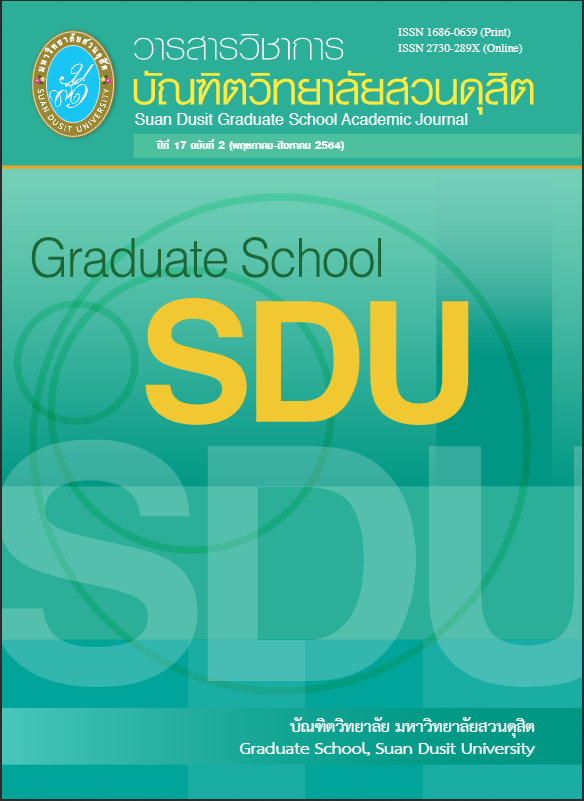An Approach of the Creation of Objectives and Key Results on School Assessment
Keywords:
Institution Assessment, Key Result, Creating ObjectivesAbstract
The concept of creating objectives and key results or also known as OKRs was an extension of the Management by Objectives (MBOs) concept. Regarding the MBOs concept, the focus was mainly on creating objectives. Any institution thought that any of the main objectives or key results which was inappropriate can be adapted to match their context. In principle with OKRs, operators should set up the OKRs themselves, not coerced by the management. Administrators were able to provide feedback in the event that they were of the opinion that the established OKRs did not match the organization's OKRs and that the OKRs were not the tool for assessing the performance of teachers and professors or the management but rather the tool for increasing productivity. OKRs benefited central government agencies in driving policies by giving each school the opportunity to do it themselves through the OKRs. In addition, it also contributed to the creation of creativity and innovation in education at the school level or even at the level of teachers and professors.References
เกศินี ประทุมสุวรรณ. (2562). การประยุกต์ใช้แนวคิด OKRs กับโครงการสร้างเสริมสุขภาวะ, วารสารรามคำแหง ฉบับมนุษยศาสตร์; 38(2). pp. 111-128.
คณะกรรมการอิสระเพื่อการปฏิรูปการศึกษา. (2562). แผนการปฏิรูปประเทศด้านการศึกษา. กรุงเทพฯ : มปท.
สำนักงานเลขาธิการสภาการศึกษา. (2562). รายงานผลการศึกษาแนวทางการจัดทำระบบการประกันคุณภาพการศึกษาภายในสถานศึกษาที่เชื่อมโยงกับมาตรฐานการศึกษาของชาติโดยใช้แนวคิดระบบการวัดผลแบบ OKRs : Objective and Keys Results. กรุงเทพฯ : บริษัท 21 เซ็นจูรี่ จำกัด.
สำนักงานเลขาธิการสภาการศึกษา. (2562). สภาวะการศึกษาไทย 2561/2562 การปฏิรูปการศึกษาในยุคดิจิทัล. กรุงเทพฯ : สำนักงานเลขาธิการสภาการศึกษา 2562.
Fitzpatrick, J.J. (2018). Do We Always Measure What Matters in Nursing Education? Nursing Education Perspectives, 39(6), pp.334.
Vigoda-Gadot, E. and Angert, L. (2007). Goal Setting Theory, Job Feedback, and OCB: Lessons from a Longitudinal Study, Basic and Applied Social Psychology, 29(2), pp. 119-128.
Wade, D. T. (2009). Goal Setting in Rehabilitation: An Overview of What, Why and How, Clinical Rehabilitation 2009; 23. pp. 291-295.
Zhou, H. and He Y.L. (2018). Comparative Study of OKR and KPI. International Conference on E-commerce and Contemporary Economic Development (ECED 2018). pp. 319 - 323.
Downloads
Published
How to Cite
Issue
Section
License
Copyright (c) 2021 Suan Dusit Graduate School Acadamic Journal

This work is licensed under a Creative Commons Attribution-NonCommercial-NoDerivatives 4.0 International License.






